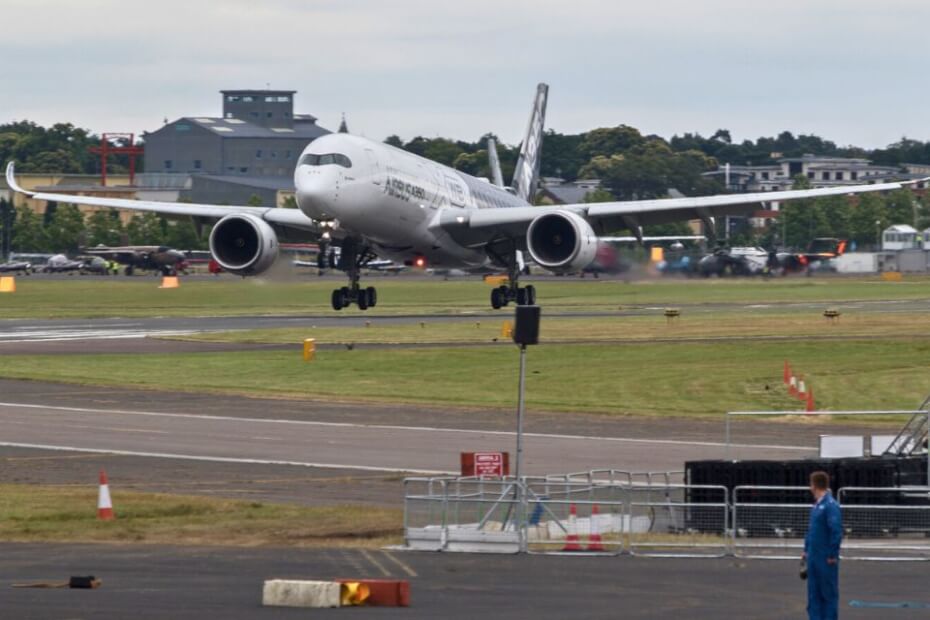
The UK Border Force is urging aircraft and fixed-base operators (FBOs) to prepare for the more expansive rollout of the new Electronic Travel Authorization (ETA).
Nigel Farminer, deputy director of passenger policy and border transformation with the UK Border Force, said aircraft operators and FBOs must adapt their operations to enforce the new ETA scheme, Aviation International News reported.
At the British Business and General Aviation Association Conference held on 7 March 2024, Farminer said that the ETA would facilitate border checks.
He shared that it would allow border control officials to take “a more holistic and rounded approach” when assessing the eligibility of passengers to enter the UK.
The ETA scheme will also help determine if border officials must conduct in-person screening of passengers arriving via private aircraft.
Alleged inefficient border security at airports
Last month, David Neal, the UK’s former independent chief inspector of borders and immigration, was fired for leaking his unpublished reports on the UK’s airport border security measures.
According to the BBC, in his reports, Neal accused the UK Border Force of not properly screening passengers on business jets arriving at London City Airport.
He noted that border officials were distracted and stressed, and Border Force resources were inconsistently deployed.
Neal described how border officials lacked basic communication equipment while manning electronic passport gates (eGates). This resulted in unmanned border posts while staff sought additional help.
The former chief inspector’s allegations have raised concerns about the effectiveness of the UK’s security measures.
ETA scheme to help improve security at all airports
The new ETA scheme allows the government to more accurately log and track travelers who enter and leave the UK.
It enables the government to collect data and pre-screen travelers. The travelers’ data could help deter individuals who may be considered threats to national security from arriving in the country.
The ETA scheme requires all non-visa nationals or those who can visit the UK without a visa to apply and receive their ETA before traveling to the UK.
Implementing the ETA will affect all non-visa passengers at all airports, including commercial and private airports.
Even passengers arriving at airports like Farnborough Airport, which is exclusively used for private jets, must comply with the new system.
The ETA scheme has been gradually implemented on a nationality basis since November 2023.
Currently, only citizens of Jordan, Bahrain, Kuwait, Oman, Qatar, Saudi Arabia, and the United Arab Emirates (UAE) are required to have an ETA.
However, the British government expects to expand the ETA rollout to all other non-visa nations by the end of 2024.
Once granted, an ETA will be valid for two years or until the passport linked to it expires. It allows multiple short trips to the UK for leisure, business, study, or transit.
Aircraft operators must ensure their passengers have ETAs
Air carriers, including airlines, private aircraft operators, and FBOs, must ensure their passengers have valid permissions before boarding the aircraft.
This means they must check if their passengers have a valid UK ETA, visa, or immigration status before carrying them to the UK.
Since the ETA is a digital document, carriers can check permissions by scanning passengers’ passports.
The Home Office is transitioning all physical travel permissions to digital records to simplify the checking process and increase security.
Having a fully digital border is expected to decrease the number of people denied entry at the border.
Consequently, it will help carriers reduce the cost of detaining and returning denied passengers to their country of origin.
Failure to check passengers’ permissions or carrying them to the UK without valid permissions may result in penalties of up to £50,000.
Aircraft operators must submit GAR and API electronically
The UK Border Force’s Farminer also shared at the conference that air carriers must modify how they submit passenger information.
This will affect both General Aviation Report (GAR) and Advance Passenger Information (API) submissions.
The General Aviation Report (GAR) includes information about a flight. This consists of the aircraft’s registration number and base, the dates, times, and location of departure and arrival.
The GAR also holds details of the captain, crew, and passengers, including their travel documents and UK visiting address.
Additionally, it contains the name and contact number of the person responsible for the goods aboard the aircraft.
APIs contain a passenger’s full name, gender, date of birth, nationality, type of travel document and its number, country that issued the travel document, and expiry date.
Air carriers must submit GAR and API information through interactive portals that will trigger a response from the Home Office.
These responses could either be “Board,” “Check,” “No Board,” or “Error.”
Board means a passenger has valid permission to travel. The carrier must then check the passengers’ travel documents and verify their identities before boarding.
Check means a passenger has no record of valid permission to travel. The carrier must manually check for valid immigration or exemption documents and verify the passenger’s identity before allowing the passenger to board.
No Board means passengers cannot be carried to the UK due to a canceled or revoked permission.
An Error occurs when passenger data is incomplete. Carriers must then correct and resend data.
Other upcoming electronic border management systems
Aircraft operators must also prepare for other electronic border management systems besides the UK ETA scheme.
The EU will implement a new automated border control system affecting non-EU travelers.
The EU’s upcoming Entry/Exit System (EES) will record entries and exits in the Schengen Area using fingerprints and facial scans.
By mid-2025, the EU will also implement the European Travel Information and Authorization System (ETIAS), which is similar to the UK ETA.
The ETIAS is also a digital electronic system that will collect data and pre-screen all non-visa nationals entering the Schengen Area.

